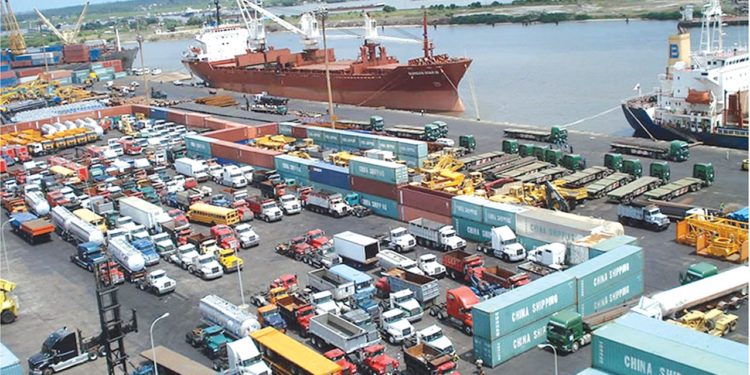Women in the maritime sector and other experts at the ongoing Lagos International Maritime Week have called on governments and regulatory authorities for a result-oriented approach to addressing water pollution, including legislation on chain-return process for manufacturers of non-degradable wastes.
Speaking on the theme, “Marpol at 50: Pollution From Ships, Africa’s Commitment To Clean Oceans, Seas, Inland Waters & Marine Environment,” President of Women in Maritime Nigeria (WIMA Nigeria), Rawlings Macfoy, noted that pollutions that happened in the seas (from vessels) have quite a lot of damaging effect.
According to her, domestic wastes, including all plastics and every other non-degradable waste that is not properly disposed of, find their ways into the waters, thereby destroying aquatic life and also endangering water transportation.
She noted that even Lagos State lacks appropriate dumpsites and recycling facilities, among others, therefore, she called for the involvement of the Lagos Waste Management Authority (LAWMA) in the control of water pollution.
She further called for appropriate legislation which will require the manufacturers of plastic containers, among others, as well as those seeking licence to operate the same to have a chain-return process that will ensure that their wastes return to them for recycling or appropriate disposal.
Also speaking on the same term, the president of Women in International Shipping and Trading Association (WISTA), Mrs. Eunice Ezeoke, listed the activities of drilling companies as major contributors to water pollution.
On the recent practice of burning vessels seized on allegation of conveying stolen crude, Justice Olayinka Faji of the Federal High Court agreed that it was a part of avoidable water pollution.
However, Justice Faji, who represented the president, Federal High Court, Justice Tsoho, stated that though he does not have the terms under which the vessels were burnt, “the laws have sufficient provisions, including forfeiture, for such breaches.
Meanwhile, the women in maritime associations have called for better recognition and appointment to enable them effect the necessary changes that will bring about positive developments in the industry.
Ezeoke explained that WISTA aims at bridging the gender gap in the profession and leadership positions in the maritime industry, trading and logistics, stating that the association has been promoting the engagement and grooming of women in the different segments of the industry.
She regretted that women are getting more support in other African countries, in line with the 30 per cent affirmative action, but less than 5 per cent in Nigeria.
According to her, rather than being at the helm of affairs for decision-making, they are used to garnish the leadership positions without visibility.
“A board of 10 members will be created for a corporate body and you have only one woman. Even the 35 per cent affirmative action is becoming ineffective,” she lamented.
“Why will one woman be used to garnish a committee made up of 12 men? Government finds it difficult to appoint women in some positions. Some federal government agencies in Nigeria have never been headed by a woman.”
Backing her call, Macfoy described their associations as a shipping hub, adding that they have written to the minister to “shop from us, because we have the capacity.”



